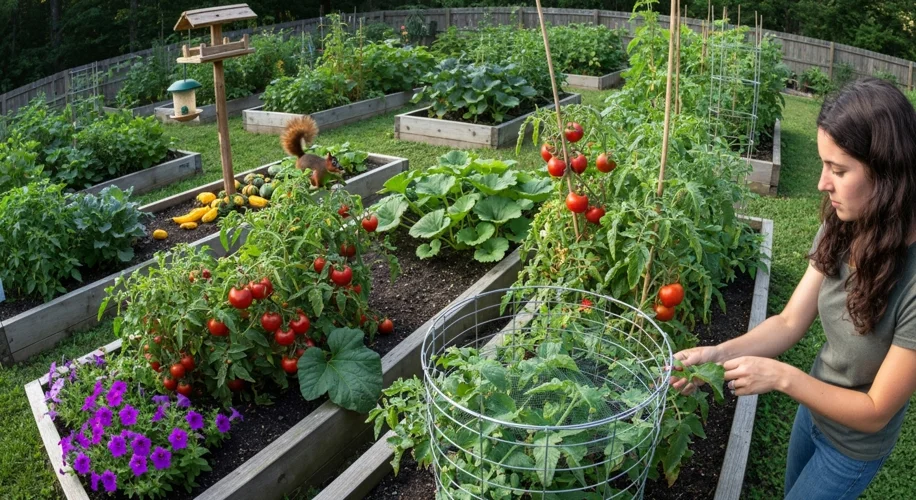Hey fellow gardeners! Elias here, back from my Zone 8A patch. If you’re anything like me, you love the satisfaction of growing your own food and flowers. But let’s be honest, there’s one persistent critter that loves to undo all our hard work: the squirrel.
These furry bandits have a knack for digging up bulbs, nibbling on seedlings, and generally making a mess of our carefully cultivated spaces. But don’t despair! Over the years, I’ve learned a few tricks to keep them from raiding my garden, and I want to share them with you.
Understanding Your Adversary
Squirrels are opportunistic and driven by instinct. They’re always looking for their next meal and a safe place to stash their food. In Zone 8A, with our generally mild winters, they’re active year-round. Knowing their habits is half the battle.
Creative Solutions for Squirrel-Proofing
- Physical Barriers are Key:
- Netting: For berry bushes or fruit trees, draped netting can be a lifesaver. Make sure it’s fine enough to deter them but doesn’t trap birds. Secure it well so squirrels can’t wriggle underneath.
- Cages: Small, wire cages or cloches placed over vulnerable seedlings or individual plants can offer great protection. You can make these from hardware cloth or chicken wire.
- Raised Beds: While not foolproof, raised beds can sometimes make it a little harder for squirrels to get comfortable digging. Adding a border of hardware cloth around the top edge can deter them from climbing in.
- Repellents That Work (Sometimes!):
- Scents: Squirrels dislike strong smells. I’ve had some luck with things like cayenne pepper sprinkled around plants, diluted garlic spray, or commercially available animal repellents. Reapplication is key, especially after rain.
- Companion Planting: Some gardeners swear by planting strong-smelling herbs like mint, chives, or marigolds near their vegetables. While I haven’t seen a huge impact from this alone, it adds beauty and flavor to the garden, so it’s a win-win!
- Strategic Planting:
- Tougher Plants: Consider planting things squirrels are less likely to target, like plants with tougher leaves or strong scents. They tend to leave plants like rosemary, lavender, and most ornamental grasses alone.
- Bulb Protection: When planting bulbs, consider placing them in bulb cages or burying them deeper than usual. A layer of gravel or sharp grit over the planted area can also deter digging.
- Diversion Tactics:
- Offer an Alternative: Sometimes, providing an alternative food source away from your prize plants can distract them. A simple bird feeder with nuts or seeds placed far from your garden might work, though this can sometimes attract more squirrels.
What I’ve Learned in Zone 8A
No single method is 100% effective, and you often need a combination of strategies. What works for my garden might need a slight tweak for yours. The key is observation and persistence. Don’t be discouraged if a squirrel finds a way through one barrier; just reinforce it or try a new approach.
I remember one year, my precious strawberries were just starting to ripen, and I thought I had them covered with netting. But a particularly clever squirrel figured out how to pull it aside just enough to get in! That year, I learned the importance of really securing those barriers and checking them daily.
So, let’s keep our gardens beautiful and our harvests intact. What are your go-to squirrel-deterring methods in Zone 8A? Share your experiences in the comments below – I’d love to hear them!

